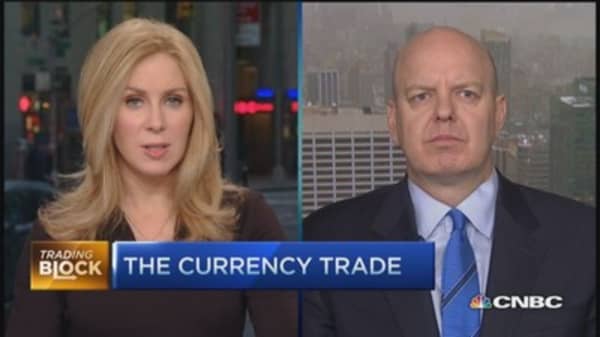I had to laugh. Watching the CNBC panel at the World Economic Forum last Friday in Davos, the German Finance Minister, Wolfgang Schauble, kind of stole the show in his dry, wry way.
Having been one of the biggest critics of the European Central Bank's quantitative easing (QE) program from the start, he walked a delicate line defending the German position a day after the ECB unveiled its full scale, 60 billion euros a month stimulus measures.
He spoke about how he respected the independence of the ECB: "I don't comment on decisions by the ECB. Never ever."
He reiterated that Germany wants to see the euro zone stick together: ' We did whatever could be done to support Greece through difficult times, again and again…We had to convince the IMF to come up with very extraordinary conditions, in line with IMF rules, so that we could support Greece."
Read MoreSoros: ECB QE means inequality and asset bubbles
And when billionaire legendary investor, George Soros, offered his views on Germany, Schauble stepped in saying that Soros perhaps wasn't the best person to ask: 'If I (Schauble) am asked on German fiscal policy, I have to explain, because I know it better than anyone else'.
Soros, incidentally, was following a more cautious line. He spoke about how the ECB's move could have unintended consequences for the market, creating possible asset bubbles. His main concern though was that quantitative easing would make the gap between the rich and the poor that much bigger, as it would benefit the owners of assets. One area where Schauble and Soros agreed is that it isn't smart only to rely on monetary policy. As Schauble said: 'I don't believe monetary policy alone can produce growth'.




